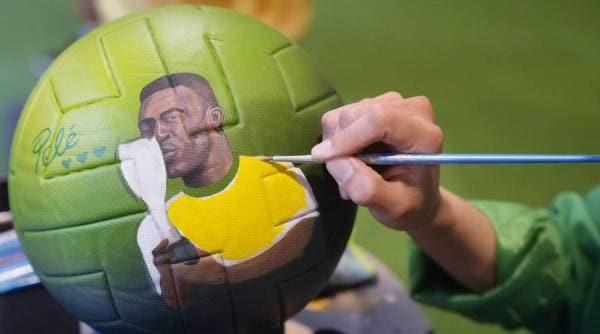When a 17-year-old Pele was termed infantile and lacking the fighting spirit
While his career saw him scoring 12 world cup goals and guiding Brazil to three world cup titles, football legend Pele was once recommended to be dropped from the Brazil 1958 World Cup team for being infantile and lacking the necessary fighting spirit by Brazilian psychologist Joao Carvalhaes. With the Brazilian team suffering a loss in the final against Uruguay in the 1950 World Cup and a quarter-final loss against Hungary in the 1954 world cup, the Brazilian Football Federation had appointed Carvalhaes as the team’s psychologist. The Brazilian psychologist conducted psychometric tests on all the members of the Brazil team and would tell the then Brazil coach Vicente Feola to drop Pele from the world cup.
“As part of our preparations, the team psychologist, professor Joao Carvalhaes, had conducted tests on all the players. We had to draw sketches of people and answer questions to help Joao make assessments about whether we should be picked or not. About me he concluded that I should not be selected. ‘Pele is obviously infantile. He lacks the necessary fighting spirit.’ He also advised against Garrincha, who was not seen as responsible enough,” Pele wrote in his autobiography Pele.
 Paraguay’s artist Lili Cantero paints a ball with the face of Brazil legend Pele. (AP)
Paraguay’s artist Lili Cantero paints a ball with the face of Brazil legend Pele. (AP)
Carvalhaes, a referee trainer, had joined Brazilian club Sao Paulo in 1957 and ran a psychology laboratory at the club’s headquarters. According to BBC, the lab’s function consisted of running 10 tests on players examining their cognitive functions of the referees. Carvalhaes, who also worked as a boxing commentator and journalist, also conducted his Army Alpha tests on the players of the club, a test based on an American programme to assess the mental condition of world war recruits. After he joined the Brazilian team in 1958, he conducted tests on the Brazil team members including Pele and others. His report would be leaked, according to the BBC and it recommended dropping Pele and Garrincha for the world cup. While Carvalhaes travelled with the team, he also conducted Myokinetic Pshychodiagnosis (MKP) tests asking players to draw sketches. “Fortunately for me and Garrincha, Vicente Feola (Brazil’s manager) was always guided by his instincts, and he just nodded gravely at the psychologist saying; “You may be right. The thing is you don’t know anything about football. If Pele’s knee is ready, he plays.;” Pele wrote in his autobiography.
Pele would go on to score six goals in the 1958 world cup, which also saw him becoming the youngest scorer in the history of world cup with a goal against Wales in the quarter-final. Pele scored a hat-trick against France in the semi-final before scoring a brace against hosts Sweden to help Brazil win the world cup. Pele’s first goal in the final saw him bouncing a volley under Swedish goal-keeper Kalle Svensoon and the Brazilian talked about the goal in an interview to FIFA years later. “if I said I thought about it, I would be lying. It was a spur-of-the moment reaction, quick thinking. When I controlled it, I was going to hit for the first time but then I thought quickly and adjusted, One of the strengths in my life and in my football was my improvisation, to change at the last second,” Pele had told FIFA.